How to Complete Your Educational Credential Assessment

0%
Ensure you are accessed through an organization in the province where you will live, as some credentials are tied to a specific area.
LIP
Most jobs in Canada require a certain education level and a college or university degree. Many professional career paths also require specific credentials and/or certificates to be practiced legally within the country.
These are typically jobs in the medical field, such as physician or pharmacist or in the field of law. There are professional associations for nearly every career path, and these are often optional to join. However, some jobs do require your adherence to professional associations.
So even though you may have been educated outside of the country, you may face additional steps before you can work in your field. Sometimes your degree may not be accepted legally, while other times, it may be rejected by uninformed employers.
So if you want to work in a stricter career field or pursue higher education, your certificates, degrees, and diplomas must be assessed to see how they fare against the Canadian educational system.
The Immigration, Refugees and Citizenship Canada (IRCC) asks that newcomers receive an educational credential assessment (ECA) before entering the country. This helps with their immigration status and, depending on the results, proves you have the right capabilities.
Many organizations claim they can assess credentials. So to avoid scams, the IRCC recommends going through the following groups:
Ensure you are accessed through an organization in the province where you will live, as some credentials are tied to a specific area.
If your degree is in a highly specialized field, make sure you research whatever organization governs your field, as you may have additional requirements. These requirements range from simply receiving membership in a particular association or may lead to you starting your education from scratch. You may also require certain licences besides a degree, diploma or certificate.
Do not make the mistake of moving to Canada without verifying that you can work in your field unless you wish to discover a new career path. Whenever you are in doubt, contact your profession’s regulatory body.
Suppose you would like to return to school or obtain another diploma, a master’s degree or a doctorate. In that case, you will also need an ECA and/or receive a Mature Student designation, which is specific to the college or university. The latter will be most useful to you as it will consider your age and life experience. Even as a mature student, you will have the complete course prerequisites, and those exact requirements will vary by institution. You must contact the post-secondary institute directly to see what is needed of you.



